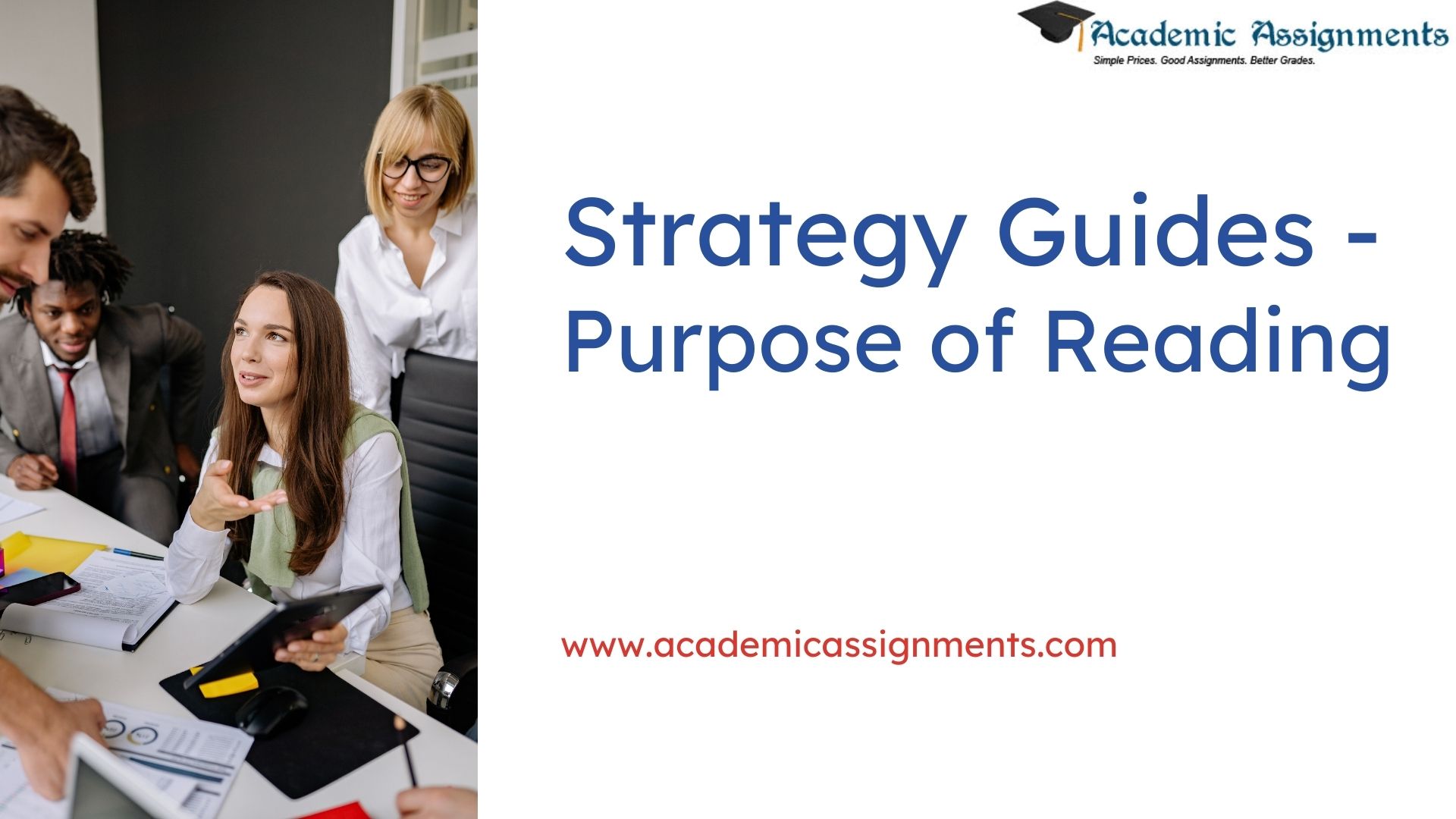Strategy Guides – Purpose of Reading
Reading rules can assist students with further developing their agreement. They help understudies in exploring reading content.
Strategy guides give ideas or complete solutions to specific computer games.
The differentiation between strategy guides and stroll through is foggy. The previous regularly contains or is composed around the last option.
Strategy manuals are habitually distributed on paper, as the two books and pieces in computer game magazines.
Guides might be sold through more standard distribution channels, for example, book shops or even news remains, on account of incredibly famous game titles.
On their sites, a few distributors likewise sell E-Book forms.
(Get the best quality assignment help from Academic Assignments)
Purpose of Reading:
- The objective of Reading is to make associations between the thoughts on the page and what you know.
- You have a psychological structure for Reading, appreciating, and putting away data.
- Cognizance is being improved.
- Inspiration, cognitive systems for holding ideas, centre, and brilliant review abilities are necessary for reading understanding.
Reading with a purpose is significant
Putting forth a reading objective keeps the peruser engaged and connected. At the same time, they read, just as giving them a mission to assist understudies with supporting their perception.
Reading with a purpose energizes kids and helps students who will more often than not rush in Reading by permitting them to take as much time as is needed and not skim over significant pieces of the book.
Six Purpose of Reading
Fredrika (2002), the classification of purpose for Reading incorporates are:
- reading to look for basic data.
- reading to skim rapidly
- reading to gain from text
- reading to incorporate data
- reading to compose
- reading to scrutinize texts and
- reading for general understanding
A portion of the motivations behind why individuals generally read:
- Delight and pleasure
- Useful application
- To acquire an outline
- To explicit district data
- To distinguish the focal thought or topic
- To foster a definite and basic arrangement
One of the famous techniques for Reading is known as the SQ3R (Survey, Question, Read, Recall, Review) strategy.
Peruse, Recall and Review are the three phases of Reading.
Reading in Content Areas
Said, content region reading will be reading to learn.
It incorporates the abilities and capacities necessary for a student to understand intricate, educational text, like in Social Studies, Science, and Math.
When essential sources are utilized, content region reading turns out to be seriously intriguing.
As of late, it has been extended to incorporate Reading, composing, talking, tuning in, and seeing in text-related learning (Vacca and Vacca, 2005).
Reading in the substance region significant
Content region reading is pivotal because it permits understudies to rehearse and refine their education capacities throughout the school day, rather than just during language or writing classes.
Content Area Reading Instruction
- acclimates understudies with logical text’s construction
- energizes the improvement of content-region jargon
- expands the capacity to perceive words;
- further develops reading familiarity; and
- centres around and clarifies how, why, when, and where to utilize various perception strategies.
Three sorts of Reading are needed in the substance regions:
Science, history, and writing require exacting, inferential, and applied/evaluative reasoning.
Moreover, reading compositions in these fields requires a wide jargon and a determined exertion.
Reading Strategies That Work In Every Content Area
- Rehash
- Initiate Prior Knowledge
- Use Context Clues
- Construe
- Verbally process
- Sum up
- Find Key Words
- Make Predictions
- Use Word Attack Strategies
- Envision
- Utilize Graphic Organizers
- Assess Understanding

 Blogs
Blogs +44 207 5588165
+44 207 5588165

